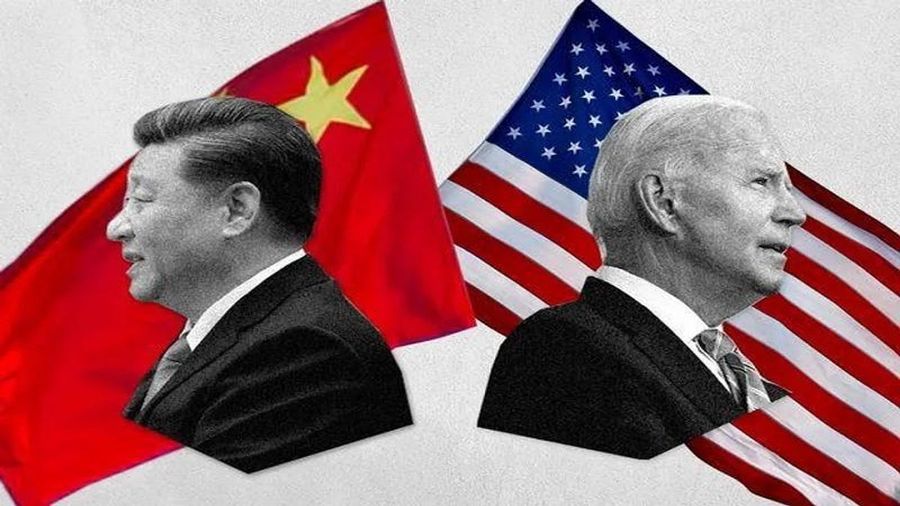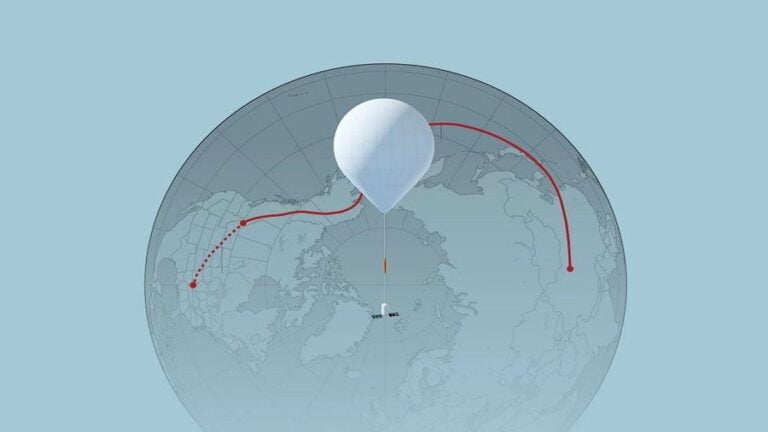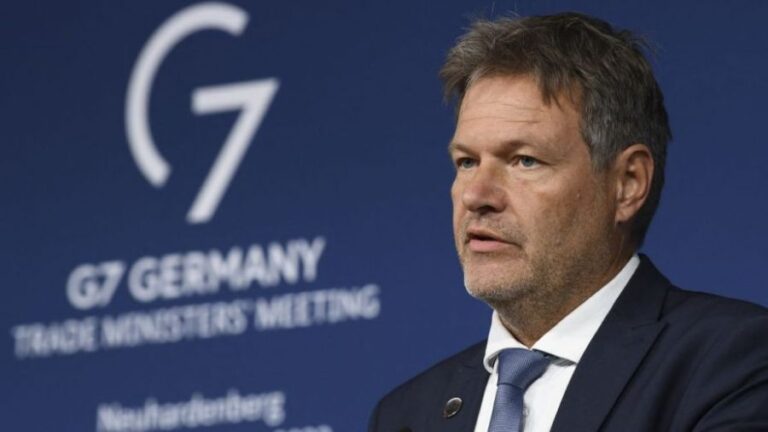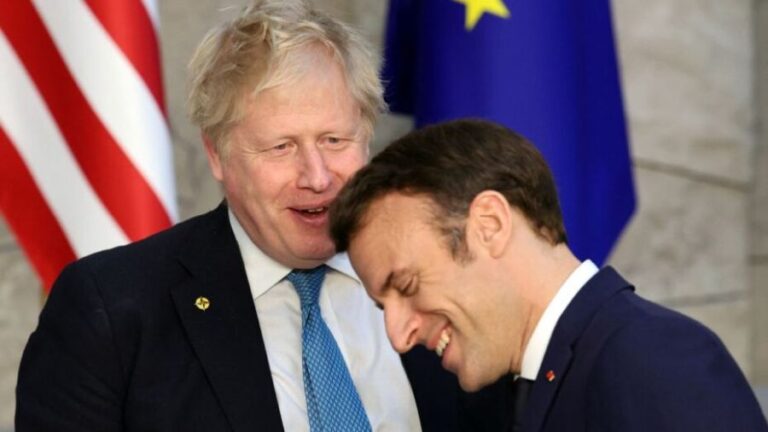The Chinese Balloon Incident Could Decisively Shift China’s & The US’ “Deep State” Dynamics
The trajectory along which everything is expected to unfold will likely remain within the parameters established in this piece. Should that change, then it’ll be accounted for in follow-up analyses that incorporate whatever development it may be into the grand strategic model that was just shared and might thus accordingly reshape assessments about these “deep state” dynamics. In any case, hopefully the reader appreciates this new paradigm through which to interpret the balloon incident.
Chinese Balloon Or Black Swan?
The Chinese weather balloon incident might go down in history as a game-changer in terms of how decisively it could shift China’s and the US’ respective “deep state” dynamics. Since mid-November, both were pursuing a hoped-for New Détente, but now the first’s hitherto presumably predominant US-friendly faction is on the backfoot while the second’s anti-Chinese one whose prior influence was replaced by its anti-Russian rivals upon Trump’s 2020 election loss is now once again rapidly ascending.
Background Briefing: The New Détente, Russian-Chinese Relations, & The Balloon Incident
In order to properly understand the significance of what just happened, intrepid readers are encouraged to review the following pieces for context. This one “Exposing Western Media’s Narrative Agenda In Spinning The Sino-American New Détente” details the progress achieved between China and the US on the New Détente, which can also be described as their discussions over a series of mutual compromises aimed at comparatively “normalizing” their relations, up until early January.
The recent analysis asking “Why’d The CIA Chief Unexpectedly Tell The Truth About Russian-Chinese Ties” clarifies those multipolar strategic partners’ relations amidst the false perceptions propagated against them by both the Alt-Media Community (AMC) and Mainstream Media (MSM) alike, albeit each as driven by different ideological agendas and for different narrative ends. It’s crucial to accurately assess their relations on the eve of the balloon incident in order to appreciate what might come next.
As for that incident itself, this three-part analytical series discusses different dimensions of it:
* “Chinese & American Hardliners Are Likely Responsible For Blinken Postponing His Trip To Beijing”
* “Ten Legitimate Questions About Biden’s Handling Of The Chinese Weather Balloon Incident”
* “There’s Absolutely No Way That President Xi Was Aware Of The Chinese Balloon Ahead Of Time”
In short, the preceding pieces argue that hardline military factions in both derailed the New Détente.
From that observation, which intrepid readers can learn more about by reviewing the abovementioned three-part article series whose details are beyond the scope of redundantly repeating in the present piece, it becomes clear that their respective “deep state” dynamics will likely shift in a decisive way. This conclusion is predicated on each of their hardline military factions playing complementary roles in the Chinese balloon incident that resulted in delaying Secretary of State Antony Blinken’s trip to Beijing.
The US’ Decisively Shifted “Deep State” Dynamics
His planned visit was supposed to see their political leaderships make further progress on their shared goal of a New Détente, yet that entire process is now thrown into question due to what just happened. The unprecedented intervention by both of their hardline military factions into the foreign policy domain, and more broadly into the grand strategic one, could derail their prior trajectory and thus doom them to an even fiercer rivalry than ever that could spike the chances of a conventional conflict.
The US’ hardline anti-Chinese military faction is therefore expected to work closely with ideologically aligned Republicans to deal a deathblow to the New Détente and thus prioritize refocusing their declining unipolar hegemon’s comprehensive “containment” efforts on China instead of Russia. In the face of this credible scenario, China’s hardline anti-US military faction might then in turn overrule the presently predominant but increasingly discredited US-friendly one to more robustly deter America.
The newfound grand strategic trajectory along which events might soon develop could lead to the US expediting a so-called “face-saving” exit from its proxy war on Russia through Ukraine so as to more effectively “contain” China in Asia in the aftermath of the balloon incident. Germany and Poland would then play greater “Lead From Behind” roles in “containing” Russia on their patrons’ behalf in order to free up its military resources for accelerating its thus-far slow-moving “Pivot to Asia” (P2A).
China’s Decisively Shifted “Deep State” Dynamics
In response, China might consider violating the US’ secondary sanctions that it’s thus far tacitly complied with via the dispatch of lethal military aid to Russia in order to delay its systemic rival’s aforementioned pivot. “China Doesn’t Want Anyone To Win In Ukraine” since it benefits from massively purchasing discounted resources from Russia sold at below-market value due to Western pressure as well as from Russia destroying NATO’s stockpiles that are all now sent to Ukraine instead of Asia, ergo this scenario.
Moscow might not be interested in that though if Washington offers it a reasonable deal for ending the fighting there, which would have to begin with at least de facto recognizing former Ukrainian regions’ reunification with Russia. In that scenario, Russia would more effectively rebalance its partially lopsided relations with China by flipping their roles vis-à-vis each other at present by becoming one of its partner’s irreplaceable valves from newfound Western pressure upon the P2A entering into full force.
China’s hardline anti-US military faction would then have the success of its efforts to more robustly deter America in Asia disproportionately dependent on Russia, which would be expected to assist the People’s Republic to an uncertain extent in exchange for economic and technological benefits. The balance of influence in the New Cold War between the US-led West’s Golden Billion and the jointly BRICS– & SCO-led Global South of which those two are a part would thus recalibrate in Moscow’s favor.
The Inevitable Rise Of The Global South
Russia’s decades-long special and privileged strategic partners in India would also immensely benefit as well in light of that civilization-state’s astronomical rise as a globally significant Great Power over the past year brought about by its pragmatic policy of principled neutrality towards the New Cold War. By successfully becoming the kingmaker in this worldwide competition over the direction of the global systemic transition, Delhi could thus maintain the balance of influence between Beijing and Washington.
As for the first, its newfound role vis-à-vis Chinese grand strategy would complement Russia’s with respect to India also functioning as one of that country’s irreplaceable valves from newfound Western pressure, which could be leveraged to finally resolve their border disputes in Delhi’s favor as a quid pro quo. Concerning the second, India would continue comprehensively strengthening its strategic relations with the US primarily in the economic-tech and military domains to balance China’s rise in their region.
Amidst the exacerbation of the Chinese-US dimension of the New Cold War caused by the sequence of events that the balloon incident is expected to catalyze, Russia and India will continue advancing their shared grand strategic goal of accelerating the global systemic transition’s evolution from Sino-American bi-multipolarity to tripolarity ahead of its final form of complex multipolarity (“multiplexity”). The Global South as a whole will thus inevitably rise as a third pole with time due to their joint efforts.
Concluding Thoughts
Of course, the scenario forecast shared in this analysis can be offset by the Chinese and US political leaderships successfully working around their obstructionist hardline military factions to salvage their hoped-for New Détente, though the chances of that happening are low. Moreover, the US’ anti-Russian faction could also “go rogue” by unilaterally provoking that targeted Great Power in order to set into motion a chain reaction of geostrategic events that sabotages any possible peace deal in Ukraine.
All told, the trajectory along which everything is expected to unfold will likely remain within the parameters established in this piece. Should that change, then it’ll be accounted for in follow-up analyses that incorporate whatever development it may be into the grand strategic model that was just shared and might thus accordingly reshape assessments about these “deep state” dynamics. In any case, hopefully the reader appreciates this new paradigm through which to interpret the balloon incident.







